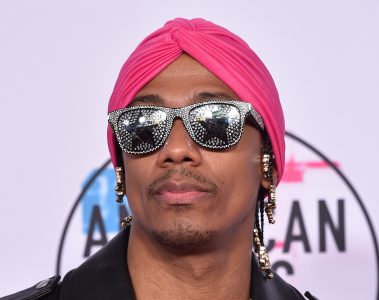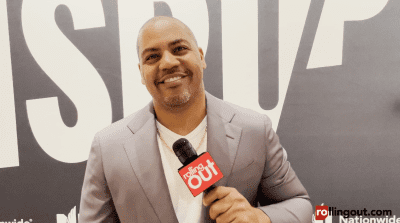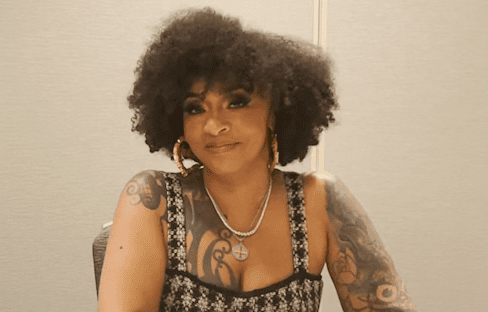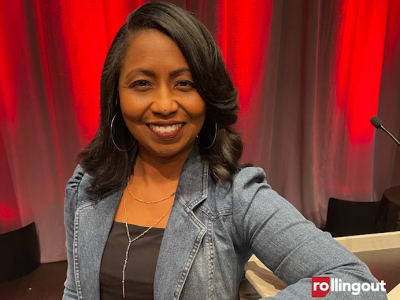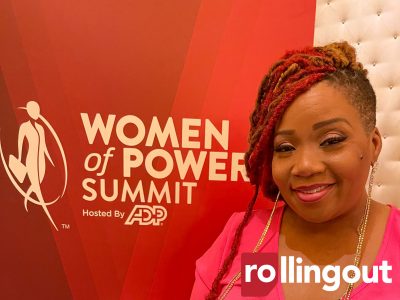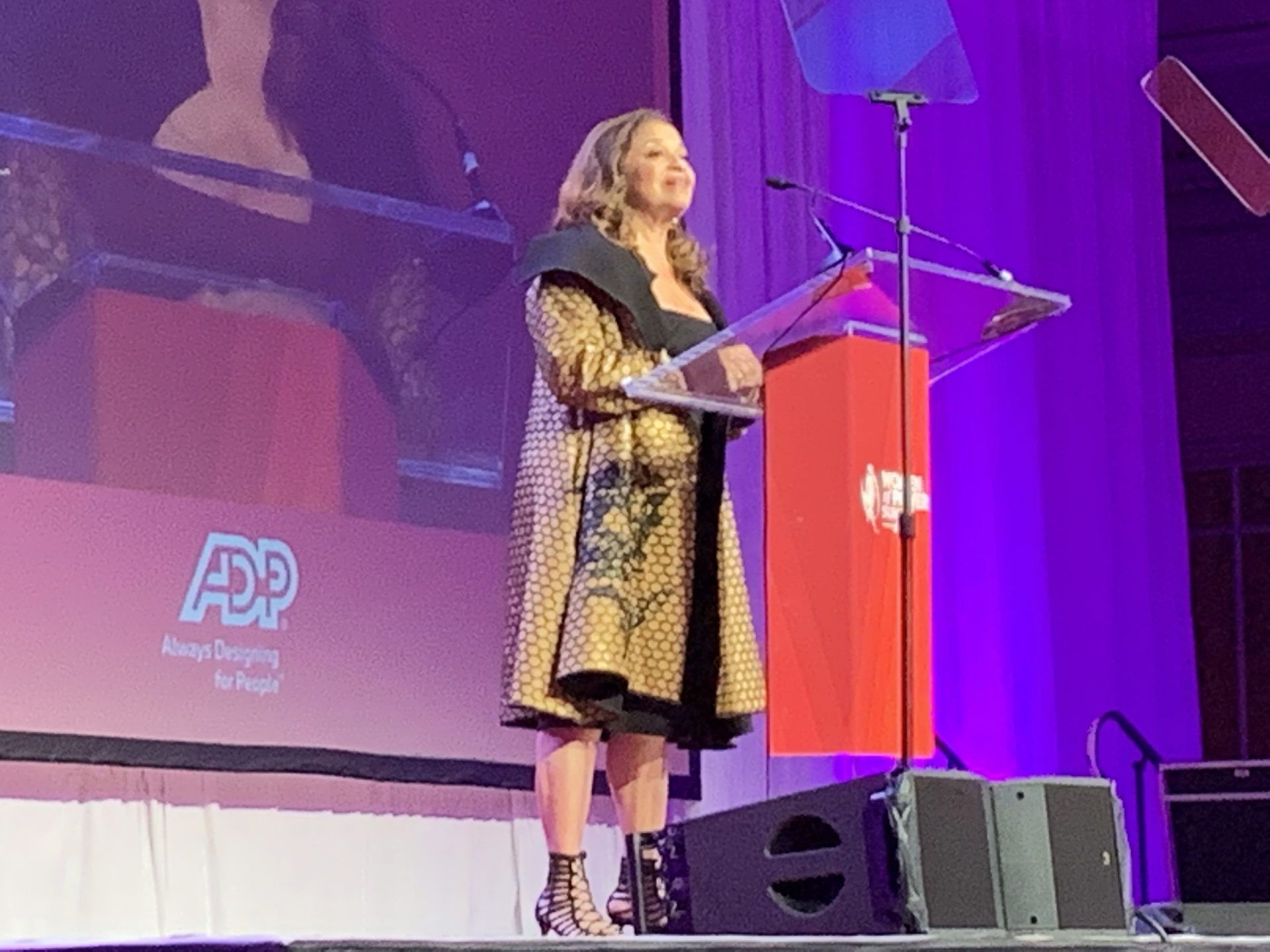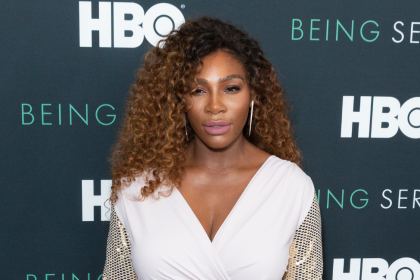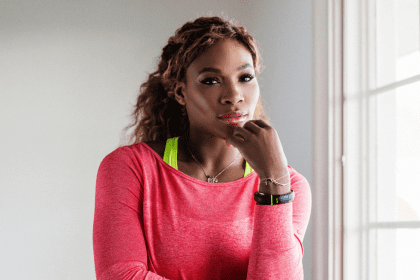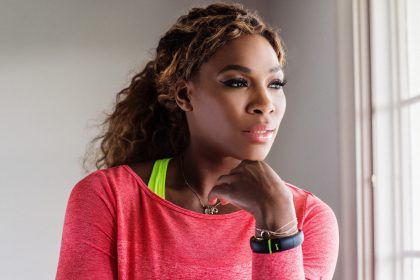 BOCA RATON, Fla. — The elegant, graceful and funny Venus Williams, wove an enthralling story of empowerment during the Black Enterprise Women of Power Conference at the Boca Raton Resort and Club. She discussed how she and her younger sister, Serena, managed to overcome adversities, rampant racism on the women’s tour and dangerous illnesses to make history and win multiple Grand Slam titles — and to become legends in the process.
BOCA RATON, Fla. — The elegant, graceful and funny Venus Williams, wove an enthralling story of empowerment during the Black Enterprise Women of Power Conference at the Boca Raton Resort and Club. She discussed how she and her younger sister, Serena, managed to overcome adversities, rampant racism on the women’s tour and dangerous illnesses to make history and win multiple Grand Slam titles — and to become legends in the process.
This was neither a sports story nor a dissertation on the elder Williams’ enviable athletic prowess that she has unfurled to buckle her opponents for more than a decade. Williams used anecdotes, personal experiences and life lessons taught by her father and others as a way to inspire the overflowing crowd of black businesswomen to take their successful games to the next level.
Take a look at some of the highlights from her keynote breakfast interview with Black Enterprise editorial director Sonya Alleyne:
 On her fierce drive for excellence: I can’t sit still, so I always have to be doing something … always achieving something. … [My sister and I] are unapologetic … we’re confident.
On her fierce drive for excellence: I can’t sit still, so I always have to be doing something … always achieving something. … [My sister and I] are unapologetic … we’re confident.
I’ve had no apologies for how I felt about myself, and I definitely don’t regret that because as a young African American woman, that’s an advantage to feel that way about yourself.
On sisterhood and competition: We dreamed of playing each other in the finals … for us, it’s very special. Just to be able to know that Williams take all is great too. [Laughs]. There have been times where we’ve played in the final at Wimbledon on multiple occasions, then we had to turn around and [less than two hours] later play the doubles finals … so it’s like, if you have any issues, you need to let them go. [Laughs]. But we wouldn’t really have any issues as that point … so that’s the kind of relationship we have before our matches.
On being raised to defeat the odds: It was a lot of fun [growing up], but there were a lot of expectations in terms of how we speak and behave. My dad always told us our goal was to be the most polite people in the world. You were never allowed to say ‘I don’t know,’ and he taught us to be independent and to think for ourselves.
My father put everything into [us] being professionals. He was definitely a visionary, and how he did it, I don’t know. Obviously, my mom was right there with him. I’m grateful.
My mom is very fair. She’d be at the matches clapping for our opponents when they hit a good shot, and I’d say ‘Mom, why would you do that? Why does she wanna win against me?’ And she’d say, ‘Aren’t they allowed to want to win?’ and I’m like, ‘No!’ [Laughs.]
On pursuing entrepreneurship: My dad would say, ‘It’s always good to have an idea,’ and I think my first job was delivering phone books. I was so young, but I thought it was fun. That was my first entrepreneurial job.
Since people know you, you can get your foot in the door, but that doesn’t mean you’re going to get the job. I’ve been in some meetings where, V Starr Interiors, our interior design company, was transitioning from residential to commercial, and we’re taking all these meetings. So we got a meeting and we had these color brochures, and the guy looked at them and said, “This isn’t good enough,” and threw them across the table. And we’re thinking, “Can we get those brochures back?” [Laughs] So, we started at the bottom, and you have to show that you’re worthy, and eventually we did get a job. You face those challenges, and as an athlete, people don’t necessarily think you can do anything else. So to transition, for me, has been important, while I’m still playing, because I have opportunities to get my foot in the door, but I have to prove myself.
[Jamba Juice] franchising was an opportunity that I wasn’t really expecting, but when it came, it was exciting and something I wanted to move on. It’s been wonderful.
On pushing through injuries and managing Sjögren’s syndrome: In the summer of 2011, I just ended up getting sick. Eventually, I got diagnosed and ended up missing quite a bit of the tour. My ranking dropped and a lot of other [not-so-great] things happened.
It was actually Serena’s idea for me to go to a health center, and I signed up. My whole family got involved. I’ve changed my diet for the most part, learned a lot and changed a lot. I’ve tried many different things, and for me, traditional medicine—though it helped a lot—wasn’t enough … at least not to play a professional sport, so I had to [look into a variety of treatments.]
This past year, I [also] ended up injuring my back, so that took away my serve, which is one of the biggest parts of my game. I was like, ‘What do I do, just ping-pong?’ [Laughs]. I ended up losing a lot of confidence, so I had to figure out how to get that back. I saw so many tough losses quite a few times and every time, I had to get back up and go.
It really helped me because I had to get better. [The lesson is] when you lose, it’s not the end. A lot of times, it’s the beginning of something really great.

